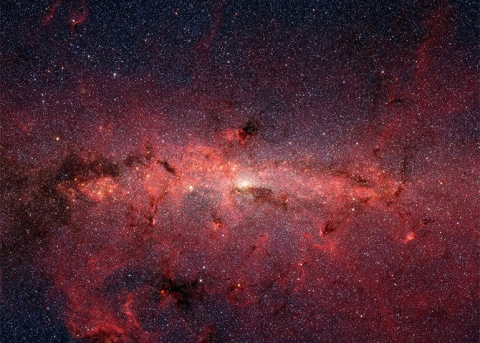

World-renowned scientists from five continents will meet to discuss the key subjects of gravity, cosmology, gravitational waves, high-energy astrophysics and black holes
12 December 2019
2 min read
Over 400 international astrophysicists will gather in Portsmouth this month to share and discuss the latest discoveries in cosmology and gravitation including black holes, quasars, dark matter and dark energy.
The 30th Texas Symposium on Relativistic Astrophysics will be hosted by the University of Portsmouth’s Institute of Cosmology and Gravitation from 15 – 20 December.
World-renowned scientists from five continents will meet to discuss the key subjects of gravity, cosmology, gravitational waves, high-energy astrophysics and black holes.
We are thrilled to be hosting such an exciting scientific meeting here in Portsmouth. The first Texas symposium was held in Dallas in 1963 and astrophysical discoveries since then have been coming thick and fast, so there is much to discuss.
Professor David Wands, Director of the Institute of Cosmology and Gravitation
The symposium also includes a free public event about gravitational wave astronomy. Professor Bernard Schutz will host a panel discussion about what happens when two black holes collide and merge together.
Professor David Wands, Director of the Institute of Cosmology and Gravitation, said: “The recent discovery of gravitational waves from colliding black holes has given us a new window on to the Universe. Observing gravitational waves not only confirms Einstein’s predictions on general relativity, but will shed new light on the lifecycle of stars and on the expansion of the Universe.”
